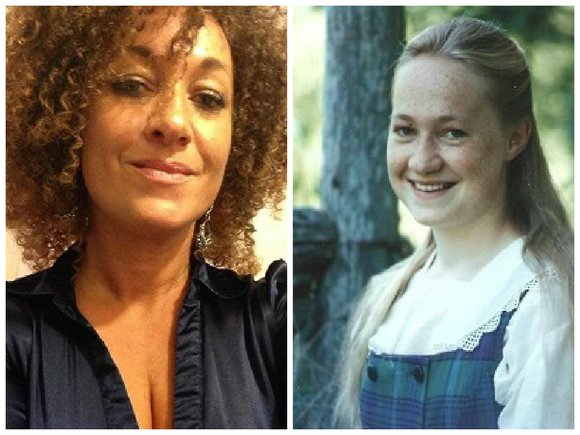(CNN) — Her statement was noticeable for what it was not.
Rachel Dolezal, president of the NAACP chapter in Spokane, Washington, resigned Monday amid allegations of lying about her race.
She stepped down in a statement that did little, if anything, to suppress the storm brewing around her and her family. Dolezal’s parents, who are white, allege that she has been presenting herself as black when she is not.
Dolezal did not address the allegations. She did not apologize.
“Please know I will never stop fighting for human rights and will do everything in my power to help and assist, whether it means stepping up or stepping down, because this is not about me. It’s about justice. This is not me quitting; this is a continuum,” she wrote in the statement posted on the NAACP Spokane Facebook page.
Dolezal said that she’s “waited in deference while others expressed their feelings, beliefs, confusions and even conclusions — absent the full story.”
Shortly after the post appeared, some on Twitter weighed in, both in support of her and against what they considered Dolezal’s deceptions.
The president of the national NAACP also weighed in after Dolezal’s resignation, issuing a statement and later speaking to CNN.
“Our members who looked up to her, appreciated her leadership, are pained, very disappointed,” said Cornell William Brooks. “This is a distraction from the work.”
He added: “The NAACP is not concerned with the racial identity of our leadership but the institutional integrity of our advocacy. Our focus must be on issues not individuals.”
Dolezal’s parents, adopted brother speak out
Dolezal’s estranged parents have spoken to the media about her supposed misrepresentation.
“We are her birth parents,” her father, Lawrence Dolezal, said Friday. “We do not understand why she feels it’s necessary to misrepresent her ethnicity.”
CNN contacted Dolezal last week, and she declined an interview. She said she stands by her record of service.
Her adopted brother, Ezra Dolezal, said she took him aside three years ago and asked him “not to blow her cover” about her alternate identity.
“She said she was starting a new life … and this one person over there was actually going to be her black father,” he said.
Another adopted brother told a similar story of separation.
“She didn’t consider them her parents and, you know, if we were to talk about then, they were Larry and Ruthanne, not Mom and Dad,” Zach Dolezal told CNN.
Dolezal has identified herself as at least partly African-American, but her Montana birth certificate states she was born to two parents who say they are Caucasian. The parents shared that document and old photos with CNN.
She began identifying herself more with the African-American community in 2007, according to her parents.
Dolezal sued Howard for discriminating against her for being white
In 2002, Dolezal — who studied at Howard University — sued the historically black college claiming she was discriminated against on the basis of race, pregnancy, family responsibilities and gender.
She specifically alleged that the decision to remove some of her artwork from a student exhibition was motivated by a discriminatory desire to favor black students over her. The suit was dismissed.
Howard spokeswoman Rachel Mann said Monday the school considers the case closed and declined further comment.
Separately, Dolezal has said she received threatening hate mail in the past, but the Spokane Police Department told CNN’s Poppy Harlow that it dropped its investigation of the letters because of a lack of leads.
The investigation was dropped before the controversy about her race became public.
In the midst of that storm, Kitara Johnson, a member of the Spokane chapter of the NAACP, says her concern isn’t that Dolezal may be white, but rather that she was perhaps untruthful about that.
“We have never called (whether she should lead) into question in terms of race,” Johnson said. “Martin Luther King said we don’t want to be judged by the color of our skin, (but) … on the content of our character.”
CNN’s Stephanie Elam, Paul Vercammen, Greg Botelho, Gary Tuchman, Tony Marco and Ralph Ellis contributed to this report.
